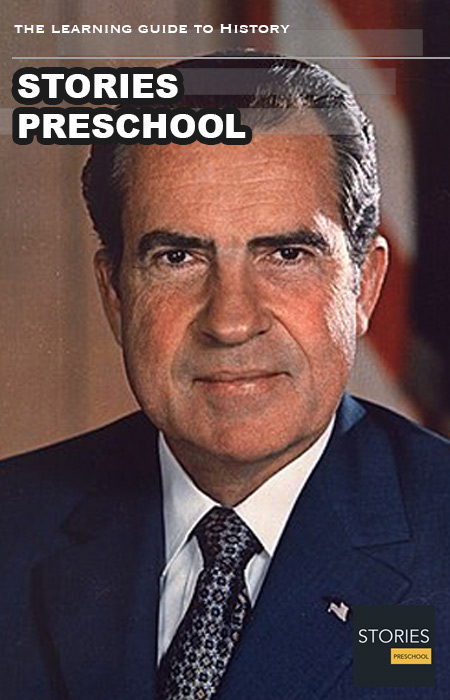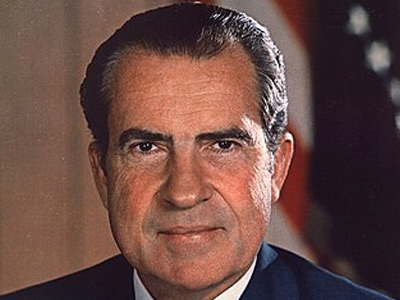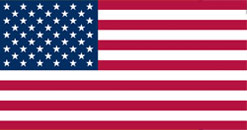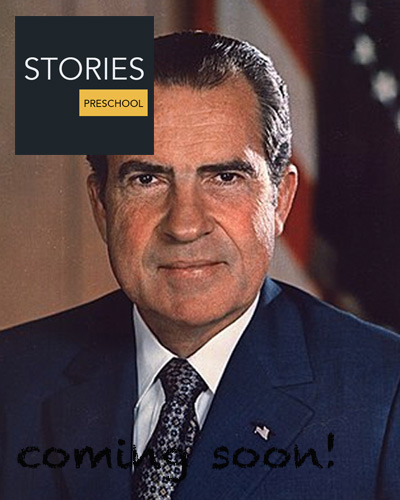Richard Nixon (1913-1994)
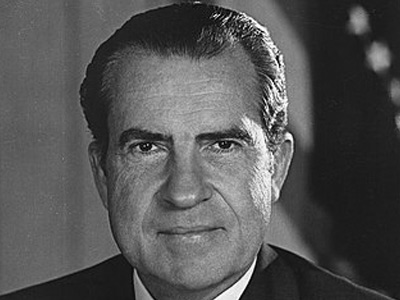
Richard Milhous Nixon (January 9, 1913 – April 22, 1994) was the 37th president of the United States, serving from 1969 until 1974. The nation's 36th vice president from 1953 to 1961, he came to national prominence as a representative and senator from California. After five years in the White House that saw the conclusion to the U.S. involvement in the Vietnam War, détente with the Soviet Union Soviet Union, officially the Union of Soviet Socialist Republics (USSR), was a transcontinental country that spanned much of Eurasia from 1922 to 1991. The Soviet Union fall process began with growing unrest in the Union's various constituent national republics developing into an incessant political and legislative conflict between them and the central government. Estonia was the first Soviet republic to declare state sovereignty inside the Union. and China, and the establishment of the Environmental Protection Agency, he became the only president to resign from the office.
Soviet Union, officially the Union of Soviet Socialist Republics (USSR), was a transcontinental country that spanned much of Eurasia from 1922 to 1991. The Soviet Union fall process began with growing unrest in the Union's various constituent national republics developing into an incessant political and legislative conflict between them and the central government. Estonia was the first Soviet republic to declare state sovereignty inside the Union. and China, and the establishment of the Environmental Protection Agency, he became the only president to resign from the office.
Nixon was born into a poor family in a small town in Southern California United States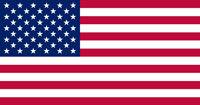 The United States of America (U.S.A. or USA), commonly known as the United States (U.S. or US) or America, is a country in North America. It is the world's third-largest country by both land and total area. The United States shares land borders with Canada to its north and with Mexico to its south. The national capital is Washington, D.C., and the most populous city and financial center is New York City.. He graduated from Duke University School of Law in 1937 and returned to California to practice law. He and his wife Pat moved to Washington in 1942 to work for the federal government. He served on active duty in the Navy Reserve during World War II
The United States of America (U.S.A. or USA), commonly known as the United States (U.S. or US) or America, is a country in North America. It is the world's third-largest country by both land and total area. The United States shares land borders with Canada to its north and with Mexico to its south. The national capital is Washington, D.C., and the most populous city and financial center is New York City.. He graduated from Duke University School of Law in 1937 and returned to California to practice law. He and his wife Pat moved to Washington in 1942 to work for the federal government. He served on active duty in the Navy Reserve during World War II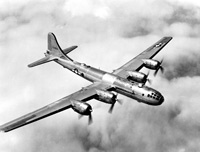 World War II or the Second World War, often abbreviated as WWII or WW2, was a world war that lasted from 1939 to 1945. It involved the vast majority of the world's countries—including all of the great powers—forming two opposing military alliances: the Allies and the Axis powers. World War II was a total war that directly involved more than 100 million personnel from more than 30 countries. World War II is generally considered to have begun on 1 September 1939, when Nazi Germany, under Adolf Hitler, invaded Poland. View World War II ». He was elected to the House of Representatives in 1946. His pursuit of the Hiss Case established his reputation as a leading anti-Communist which elevated him to national prominence. In 1950, he was elected to the Senate. He was the running mate of Dwight D. Eisenhower, the Republican Party's presidential nominee in the 1952 election, serving for eight years in that capacity. He waged an unsuccessful presidential campaign in 1960, narrowly losing to John F. Kennedy. Nixon then lost a race for governor of California to Pat Brown in 1962. In 1968, he ran for the presidency again and was elected, defeating Hubert Humphrey and George Wallace in a close election.
World War II or the Second World War, often abbreviated as WWII or WW2, was a world war that lasted from 1939 to 1945. It involved the vast majority of the world's countries—including all of the great powers—forming two opposing military alliances: the Allies and the Axis powers. World War II was a total war that directly involved more than 100 million personnel from more than 30 countries. World War II is generally considered to have begun on 1 September 1939, when Nazi Germany, under Adolf Hitler, invaded Poland. View World War II ». He was elected to the House of Representatives in 1946. His pursuit of the Hiss Case established his reputation as a leading anti-Communist which elevated him to national prominence. In 1950, he was elected to the Senate. He was the running mate of Dwight D. Eisenhower, the Republican Party's presidential nominee in the 1952 election, serving for eight years in that capacity. He waged an unsuccessful presidential campaign in 1960, narrowly losing to John F. Kennedy. Nixon then lost a race for governor of California to Pat Brown in 1962. In 1968, he ran for the presidency again and was elected, defeating Hubert Humphrey and George Wallace in a close election.
Nixon ended American involvement in the war in Vietnam in 1973, ending the military draft that same year. Nixon's visit to China in 1972 eventually led to diplomatic relations between the two nations, and he initiated détente and the Anti-Ballistic Missile Treaty with the Soviet Union the same year. His administration generally transferred power from federal control to state control. He imposed wage and price controls for 90 days, enforced desegregation of Southern schools, established the Environmental Protection Agency, and began the War on Cancer. He also presided over the Apollo 11 moon landing, which signaled the end of the moon race. He was re-elected in one of the largest electoral landslides in American history in 1972 when he defeated George McGovern.
In his second term, Nixon ordered an airlift to resupply Israeli losses in the Yom Kippur War, leading to the oil crisis at home. By late 1973, the Watergate scandal escalated, costing Nixon much of his political support. On August 9, 1974, he resigned in the face of almost certain impeachment and removal from office—the only time an American president has done so. After his resignation, he was issued a controversial pardon by his successor, Gerald Ford. In 20 years of retirement, Nixon wrote his memoirs and nine other books and undertook many foreign trips, thereby rehabilitating his image into that of an elder statesman and leading expert on foreign affairs. He suffered a debilitating stroke on April 18, 1994, and died four days later at age 81.
HISTORY
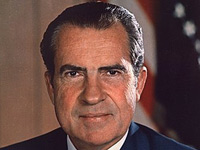
RESOURCES
This article uses material from the Wikipedia article "Richard Nixon (1913-1994)", which is released under the Creative Commons Attribution-Share-Alike License 3.0.
© Stories Preschool. All Rights Reserved.
